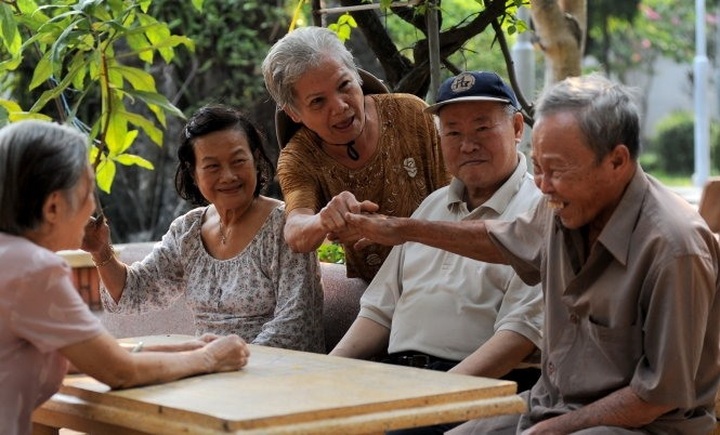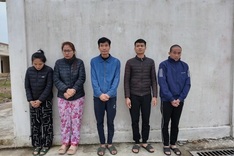
Elderly people enjoy themselves in HCM City
The action plan, approved by the Ministry of Health last December, aims to improve health outcomes for older people in the 2017-25 period.
Experts said that Vietnamese culture, which emphasizes filial duties as well as respect for the elderly, should combine with a fast-growing economy to enable the Government to achieve its stated goals for elderly care.
Experts said geriatric care in Vietnam faces a range of difficulties. An increasing number of older patients put an ever-growing burden on the already struggling healthcare fund. Most diseases that afflict older people are chronic and non-communicable, requiring frequent check-ups, constant monitoring and medications.
Pham Thang, director of the National Institute of Gerontology, said the most frequently seen diseases are high blood pressure, diabetes, joint disorders, cancer, or strokes, which demand care for the rest of the patient’s life. Elderly people are also the heaviest user of medicines, accounting for 50 per cent of all medicines taken. This causes the cost for elderly care to be five to seven times higher than care for younger adults.
In addition, older people have different health needs compared to other demographics, making it a necessity to formulate a specific plan that caters to these needs.
With improving socio-economic conditions, Vietnamese life expectancy has increased to 75.6 – putting it in second place in the region and 56th in the world. However, the country’s disease burden is tremendous, with each individual suffering from 15.3 years of illnesses during their life.
Socioeconomic development also brings new challenges for comfortable aging. Though 72.3 per cent of elders live with their children, Vietnamese families are becoming increasingly ‘nuclearised,’ raising the spectre that future retirees will live alone.
Comprehensive implementation
Geriatric healthcare has started to receive attention from the local to central level, with many community-based care models being implemented. However, the geriatric healthcare component in the general healthcare system has not caught up with the drastic demographic change.
Currently, throughout the country, only 49 out of 69 city-level and provincial-level hospitals have gerontology faculties, and only three institutes offer gerontology studies.
The action plan aims to remedy this critical shortage by requiring that all city-level and provincial-level hospitals have gerontology faculty and even a separate specialised centre for the older patients.
Furthermore, one of the action plan’s targets is that 80 per cent of the elderly are able to care for themselves, by providing them with necessary basic knowledge and practices, which will help to alleviate crowding in hospitals.
According to the plan, authorities at all levels will need to make sure that 100 per cent of elderly people have health insurance cards by 2025, and that 80 per cent receive at least one medical check-up a year and maintain up-to-date health profiles.
Presently, 17 centrally-directed cities and provinces have submitted their own action plans for review.
The General Office for Population and Family Planning is tasked with overseeing the implementation of the action plan in the country.




















